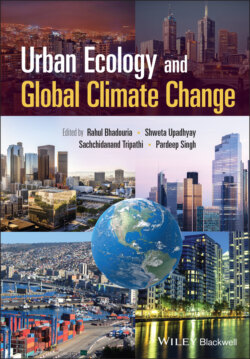Читать книгу Urban Ecology and Global Climate Change - Группа авторов - Страница 20
1.2.3 Urban Metabolism
ОглавлениеThe urban areas can be considered as an organism where consumption of materials, flow of energy and information, and waste generation (as end‐products) are the common processes occurring at various spatio‐temporal scales (Liu et al. 2013; Vasishth 2015; Verma et al. 2020a). These processes not only occur within a city but also affect the environment beyond the borders of the city, as like the natural organisms where different cells and tissues interact and involve in the metabolic processes and excrete the wastes outside the cell/body (Liu et al. 2013; Verma et al. 2020a). To understand the concept of material and energy supply for the functioning of the cities and the resultant waste (pollutants) generation in the urban ecosystems, the concept of urban metabolism has emerged (Restrepo and Morales‐Pinzon 2018). The concept was first proposed by Wolman (1965), who believed that processes occurring in the urban systems are analogous to that occurring in the metabolic processes of the living organisms. This approach helps in quantifying and identifying the movement of energy and materials as well as management of the environmental problems in an urban ecosystem (Wang et al. 2021). Thus, the research focus has now been shifted from quantifying resource consumption and environmental impacts to identifying and analysing the internal processes and the mechanisms involved in the outcomes of end‐products. Urban metabolism approach is getting wider attention of the urban ecology researchers as it helps in simulating the material flows and managing the environmental problems at different spatio‐temporal scales (Wang et al. 2021). In a CiteSpace analysis, Wang et al. (2021) identified the research trends in the urban metabolism. They found that now research communities are focussing on different micro‐ and macro‐scales in the urban areas such as by differentiating the central urban areas from the suburbs and rural areas to refine the results from the urban systems. Moreover, developing nations and the developing or less explored cities are being recognised as the new objects for the research, as several case studies are already available from the cities from the developed nations. In addition, future research should integrate the role of developing economies and the climate change phenomenon for exploring the urban metabolism at different scales (Wang et al. 2021). In the next sections, an insight has been given on the climate change and its impacts on the urban ecosystems. Moreover, the adaptation mechanisms of the urban ecology to the climate change has also been highlighted in the later sections.
